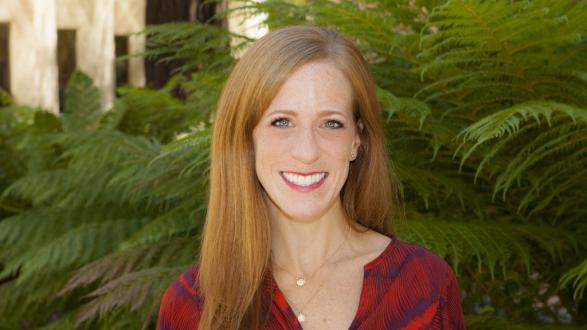In:
The Pacific Council recently welcomed Megan Karsh to the team as our new Vice President for Initiatives. In this role she will design programs and cultivate strategic partnerships to impact foreign policy. She is also a Lecturer in Law at Stanford Law School, where she served as the Executive Director of the Rule of Law Program from 2012-16, designing and implementing projects in Afghanistan, Iraq, Cambodia, and Rwanda and managing a $7.2-million grant from the State Department.
We caught up with Megan to share more about her new role and introduce her to Pacific Council members.
_____________________
Pacific Council: What are you most excited about in your new role at the Pacific Council?
Megan Karsh: I love creating opportunities to bring people together to do meaningful work and make real impact in the world. The potential to do so at the Council is vast, given the talent and diversity of membership and staff, depth and breadth of subject matter expertise, and enthusiasm.
I’m also excited to "think globally and act locally" for arguably the first time. I have lived and worked all over the world. It has been extremely rewarding but has meant that I’ve typically approached global issues from an international, national, or comparative perspective. I’m excited about the Global LA initiative and the opportunity to address global challenges at the community level in my new hometown.
What has been a highlight or turning point in your foreign policy career?
The first turning point was working in Cambodia at the Khmer Rouge Tribunal and national law school. I went into the experience assuming that I would transition to the International Criminal Court or another tribunal afterwards. At the end of the two years, however, when I took a clear-eyed look at where we made the greatest impact on Cambodian rule of law, it was undoubtedly through education. Providing access to opportunities and increasing the capacity of motivated and well-intentioned people creates many more avenues for impact than any one program designer can envision. I pivoted toward education and strategic program design, taking a position as Executive Director of the Rule of Law Program at Stanford Law School, where I still teach in the Gould Center for Conflict Resolution.
The second relates to the Rule of Law Program, where I managed a $7-million State Dept-funded project in Afghanistan. I learned on a profound level what I already conceptually knew: the chasm between foreign policy on paper and implementation on the ground is unfathomably wide, consequences for policy decisions are often borne by those least responsible, and it is critical to do thoughtful planning and systems analysis before considering any policy intervention. This informs my initiatives and program design work, where I constantly assess the political and social contexts in order to anticipate and measure intended and unintended impacts.
How would you compare the Pacific Council to peer organizations on the East Coast?
The Pacific Council is, and should be, fundamentally different than D.C. think tanks. The latter use a model that works because they are in D.C., relying on access to the Hill and a narrow definition of policy. They haven’t innovated significantly because they haven’t needed to.
The Pacific Council is more entrepreneurial by necessity and design. Researching and publishing narrowly-focused white papers from our office in Los Angeles will not lead to impact. What will is capitalizing on our strengths: our membership, bias towards and talent for innovation, and interest in leading by doing.
The Council is committed to inclusivity in our programs and membership, and one way we’re working toward that is by lifting up the voices of women in foreign policy. Why is it important to have female involvement and leadership in the field, and how can we do better?
Quality policy formation requires assessing the status quo and identifying the intended and unintended consequences of pursuing a particular policy. So the question is: how can you not involve women? Your analysis will be wrong if you haven’t heard the perspective of 49.5 percent of the world’s population. Your ability to foresee consequences of policy decisions will be shortsighted without the input of half of those participating in and affected by implementation.
The good news is that doing better is easy. Create access to opportunities. There’s no shortage of competent and committed women out there who want to do the work. Include those already in the field in panels and debates, publish their writing, hire them, promote them. For those aspiring to foreign policy careers, invest in their training and education and provide mentorship. This is a personal passion of mine, which I pursue through my teaching and volunteer work. Realize that you’re doing it not for their sake, but for the sake of better foreign policy.




